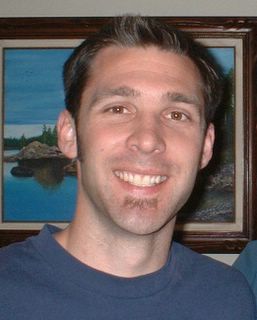Freedom from Causality
Causality is defined in three ways: 1) the relationship of a cause to its effect; 2) the principle that everything that happens must have a cause; and 3) the action that causes an effect. As humans, especially those in the helping profession, we are very interested in causality, believing that if we can determine what is causing negative effects, we can work to prevent the causes. However, causality can become a trap, especially for those of us who only know enough to be dangerous.
For example, I am currently working through some research on Parental Acceptance and Rejection Theory (PARTheory) and child abuse. Initially, I set out to show that parental rejection increases the risk of child abuse. However, there is absolutely no research that shows causality. Parental rejection is related to depression, behavior problems, and substance abuse. In turn, behavior problems, depression, and substance abuse are risk factors for child abuse and neglect. So, there may be some connection, but not necessarily.
It is the ability to say that "such and such may have something to do with such and such" that brings freedom to the researcher. In addition, being willing to allow for some ambiguity takes intellectual honesty and a certain amount of humility. We most often go wrong when we're sure we've got it right. In fact, the National Research Council's Panel on Research on Child Abuse and Neglect has gone away from simple cause-effect models because of the limitations of such models (Bethea, 1999). The models limit themselves by asking too few questions about personal characteristics of parental abusers. The models also fail to account for the occurence of different forms of abuse in one child. Lastly, the models do not explain how to weigh the value of various risk factors in child abuse and, as a result, they were not very accurate in predicting future cases of child abuse. Now the panel is replacing the old static model with an "ecologic" model that considers the origin of all forms of child abuse to be a complex interactive process.
Isn't that what we are all about? Humans are simple, on the one hand, but absolutely complex on the other. We have to be honest and humble enough to admit that we're never going to completely figure out who we are and why we do what we do. Seems to me all the more reason to be in contact with the Designer in whose image we are made. As someone entering the helping profession, I need all the help I can get! He knows us better than we know ourselves, and He knows the way out of the mazes of the mind.
For example, I am currently working through some research on Parental Acceptance and Rejection Theory (PARTheory) and child abuse. Initially, I set out to show that parental rejection increases the risk of child abuse. However, there is absolutely no research that shows causality. Parental rejection is related to depression, behavior problems, and substance abuse. In turn, behavior problems, depression, and substance abuse are risk factors for child abuse and neglect. So, there may be some connection, but not necessarily.
It is the ability to say that "such and such may have something to do with such and such" that brings freedom to the researcher. In addition, being willing to allow for some ambiguity takes intellectual honesty and a certain amount of humility. We most often go wrong when we're sure we've got it right. In fact, the National Research Council's Panel on Research on Child Abuse and Neglect has gone away from simple cause-effect models because of the limitations of such models (Bethea, 1999). The models limit themselves by asking too few questions about personal characteristics of parental abusers. The models also fail to account for the occurence of different forms of abuse in one child. Lastly, the models do not explain how to weigh the value of various risk factors in child abuse and, as a result, they were not very accurate in predicting future cases of child abuse. Now the panel is replacing the old static model with an "ecologic" model that considers the origin of all forms of child abuse to be a complex interactive process.
Isn't that what we are all about? Humans are simple, on the one hand, but absolutely complex on the other. We have to be honest and humble enough to admit that we're never going to completely figure out who we are and why we do what we do. Seems to me all the more reason to be in contact with the Designer in whose image we are made. As someone entering the helping profession, I need all the help I can get! He knows us better than we know ourselves, and He knows the way out of the mazes of the mind.


0 Comments:
Post a Comment
<< Home